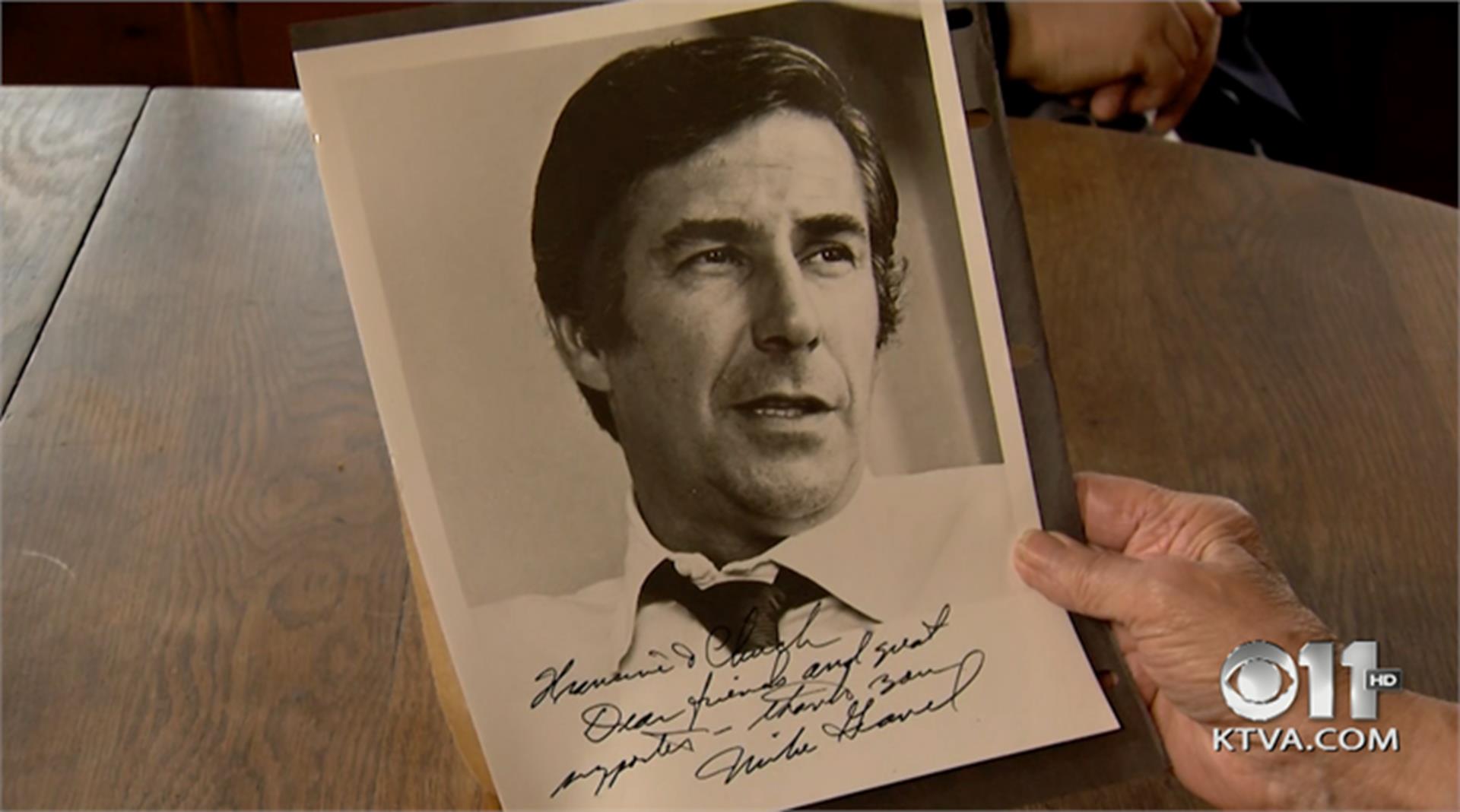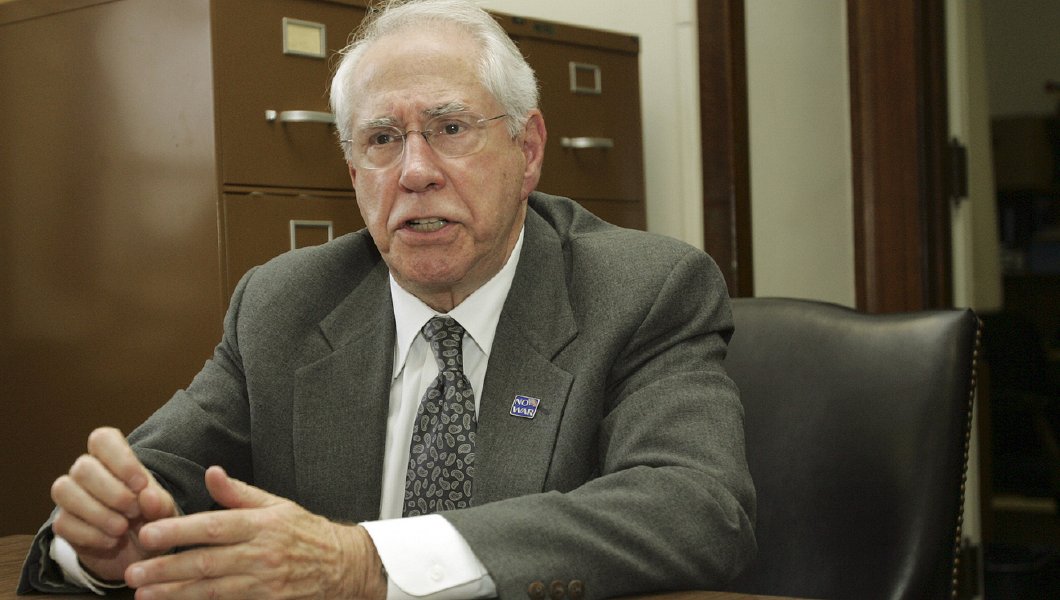July 12th, 2007 by Mark Beemsterboer
On Wednesday the Senate voted against cutting off debate and advancing a bill on a Democratic proposal ordering troop withdrawals from Iraq. Sixty votes were needed for approval of the motion (cutting off debate) and there were only 52 “yes” votes with 47 “no” votes. Voting “no” is a vote against Senator Gravel’s 120-day troop withdrawal plan, and a vote for perpetuating the War in Iraq and the death of U.S Soldiers.
It should be noted that, although Democratic Sen. Harry Reid voted “no,” he said he still supported cloture. He voted “no” only so that he could, under the rules of the Senate, request a reconsideration of the vote.
Below is a list of the Senators who voted “no” to cutting off debate.
Democrat: Reid, Nev.
Independent: Lieberman, Conn.
Republican:
Alexander, Tenn.
Allard, Colo.
Bennett, Utah
Bond, Mo.
Brownback, Kan.
Bunning, Ky.
Burr, N.C.
Chambliss, Ga.
Coburn, Okla.
Cochran, Miss.
Coleman, Minn.
Corker, Tenn.
Cornyn, Texas
Craig, Idaho
Crapo, Idaho
DeMint, S.C.
Dole, N.C.
Domenici, N.M.
Ensign, Nev.
Enzi, Wyo.
Graham, S.C.
Grassley, Iowa
Gregg, N.H.
Hatch, Utah
Hutchison, Texas
Inhofe, Okla.
Isakson, Ga.
Kyl, Ariz.
Lott, Miss.
Lugar, Ind.
Martinez, Fla.
McCain, Ariz.
McConnell, Ky.
Murkowski, Alaska
Roberts, Kan.
Sessions, Ala.
Shelby, Ala.
Specter, Pa.
Stevens, Alaska
Sununu, N.H.
Thune, S.D.
Vitter, La.
Voinovich, Ohio
Warner, Va.
A STRATEGIC PLAN TO FORCE THE PRESIDENT
TO WITHDRAW AMERICAN TROOPS FROM IRAQ
Our nation is fighting a war that cannot be “won” militarily.
It is time to make a choice about this war: keep our military forces in Iraq, exposing our troops to continued injury and death; or withdraw our troops from Iraq, opening avenues for global diplomacy to stem the sectarian violence.
An overwhelming majority of Iraqis want our troops to leave Iraq. Even the Iraqi Parliament is joining this chorus. And now that the American public knows that the unprovoked invasion of Iraq war was based on deliberate lies, the majority of Americans want our troops to leave Iraq now, not next year. But President Bush has no intention of bending to the will of the American people and has stated repeatedly that the war will continue until he leaves office.
Americans are frustrated with Congressional efforts that have been timid, confused and ineffectual in the face of continued loss of American and Iraqi lives. We must accept the fact that the President will veto any and all legislation that limits his prosecution of the war as Commander-in-Chief.
The Congress must confront the President constitutionally with its superior power––the power to make law. Only the Congress can make laws under the Constitution; the President is charged with enforcing and obeying the laws enacted by the Congress.
The Congress with sufficient resolve and the strength of leadership can enact a law to withdraw American forces from Iraq within 120 days. Violation of this law would cause the President, the Vice-President, Secretary of Defense and the Secretary of the Treasury to commit a felony, setting the stage for their immediate impeachment and prosecution.
This constitutional confrontation between the Congress and the President can be successfully resolved––by the withdrawal of American forces within 120 days––if sufficient numbers of American voters are prepared to pressure two-thirds of their Senators and Representatives to vote to override the President’s veto.
The lynchpin of this plan requires that the Speaker of the House and the Majority Leader in the Senate set up protracted and repetitious cloture votes and veto override votes to give voters at home sufficient time to understand, absorb and then react to the votes of their senators on cloture in the Senate and to the votes of their representatives in the House and their senators in the Senate to override the President’s veto.
In what may be a surprisingly short period of time, bowing to the self- interest of political survival, the Congress will override the President’s veto to pass the Armed Forces Withdrawal from Iraq Act. The clear issue for members of Congress supporting Bush’s Oil War is political survival.
The Plan
1. The Speaker of the House and the Majority Leader of the Senate must coordinate the immediate introduction of the United States Armed Forces Withdrawal From Iraq Act in their respective chambers and bring the Act to final passage as soon as possible. To avoid a conference committee, amendments to the Act must not be permitted.
2. The House of Representatives will likely pass the Act first since it has a clear majority of Democrats and is not subject to a filibuster.
3. Those opposed to the Act in the Senate will undoubtedly mount a filibuster to deny passage by a simple majority. At this point the Leader must schedule a cloture vote at noon on the first day of extended debate. A cloture vote requires 60 Senators to vote to limit debate, thus permitting the Act to be voted on for final passage by majority vote.
Assuming the required 60 votes to close debate (invoking cloture) are not secured initially, the Leader must schedule a cloture vote the next day at noon, and at noon on every subsequent day until there are 60 votes to invoke cloture. The Senate must remain in session seven days a week and all vacations canceled. This is small discomfort for Congress compared to that of our soldiers dying and maimed every day in Iraq.
4. President Bush will veto the Act.
5. The same tactic that was used in the Senate to secure the 60 votes to limit debate must now be employed in both the House and the Senate to override the President’s veto. The Speaker of the House and the Majority Leader of the Senate must schedule an override vote at noon on the first day that the Act is returned to the Congress, and continue to schedule override votes at noon every day, seven days a week without vacations, until each chamber is able to override the President’s veto.
6. Once the veto is overridden and the President begins to withdraw American troops, the Congress can enact additional legislation attendant to the withdrawal.
Passage of the United States Armed Forces Withdrawal From Iraq Act will allow our nation to remove its soldiers from harm’s way and then permit the United States to pursue a diplomatic solution with nations in the region and the United Nations to end the bloody civil war Bush’s unprovoked invasion brought to Iraq.
______________
UNITED STATES ARMED FORCES
WITHDRAWAL FROM IRAQ ACT
Effective 120 days after this bill becomes law:
1. All members of the United States Armed Forces must be withdrawn from Iraq, except the Marine Corps guards serving on the sovereign territory of the United States at the U.S. Embassy in Baghdad and performing solely typical embassy guard duties. No member of the United States armed forces may remain within the borders of Iraq on or after the 121st day after this bill becomes law.
2. No funds authorized or appropriated at any time by any other Act of Congress or controlled by the United States or any of its officers, employees, or agents (whether or not the use of such controlled funds has been authorized or appropriated by an Act of Congress) may be used to conduct or support military or paramilitary operations (whether conducted by members of the United States Armed Forces or by military personnel or civilians of any nation) within or over the territory of Iraq (which territory of Iraq includes the waters within 3 miles of the Iraqi coast) except for travel by the Marine Corps embassy guards allowed by Section 1.
3. On the 122nd day after this bill becomes law and on the first business day of each month thereafter (for a period of one year following the 122nd day after this bill becomes law), each of the following officials shall deliver to the Congress a separate written certificate signed by the official under penalty of perjury certifying that since the 121st day after this bill becomes law the United States has complied with the sections of this law indicated immediately after each official’s position:
a. the President – Sections 1 and 2
b. the Vice President – Sections 1 and 2
c. the Secretary of Defense – Sections 1 and 2
d. the Secretary of the Treasury – Section 2
4. It shall be unlawful for any person willfully and knowingly to violate, or to conspire to violate, any provision of this law or to deliver a written certificate to the Congress as required by Section 3 which certificate is false. The provisions of this Section 4 shall not apply to any person who, at the time of the violation, was a uniformed member of any branch of the United States Armed Forces below general officer or flag rank (below the rank of Brigadier General or below the rank of Rear Admiral). Any violation of any provision of this law, and conspiracies to commit such a violation, occurring outside the United States, shall be prosecuted only in the United States District Court for the District of Columbia, which shall have exclusive original jurisdiction over any such prosecution. Each act constituting a violation of this section shall be punished by a fine of $1,000,000 and by imprisonment for five years (without the possibility of parole, probation, or reduction in fine or sentence for any reason other than a written certificate from the prosecuting attorney representing the United States to the effect that the convicted person has provided information necessary to a conviction actually obtained of some person of higher rank for a violation of any provision of this law). Notwithstanding any other provision of law, in the event any fine is not paid as ordered by the court, the Secretary of the Treasury shall deduct the unpaid amount of the fine from any funds otherwise payable for any reason by the United States to any person convicted of a violation of any provision of this law. Such deductions shall continue until the fine has been paid in full. Notwithstanding any other provision of law, any prosecution of a violation of any provision of this law must commence within fifteen (15) years after the violation occurred.
5. The Joint Resolution to authorize the use of United States Armed Forces against Iraq (H.J. Res. 114), approved by the House of Representatives on October 10, 2002 and by the Senate on October 11, 2002, is hereby repealed.
______________
Former U.S. Senator Mike Gravel (1969-81) released both the “United States Armed Forces Withdrawal From Iraq Act” and “A Strategic Plan to Force the President to Withdraw American Troops from Iraq” at a press conference on May 14, 2007, at the National Press Club. More information is available at www.Gravel2008.us or at Mike Gravel for President, PO Box 948, Arlington, VA 22216––703-652-4698.
Amended June 5, 2007





